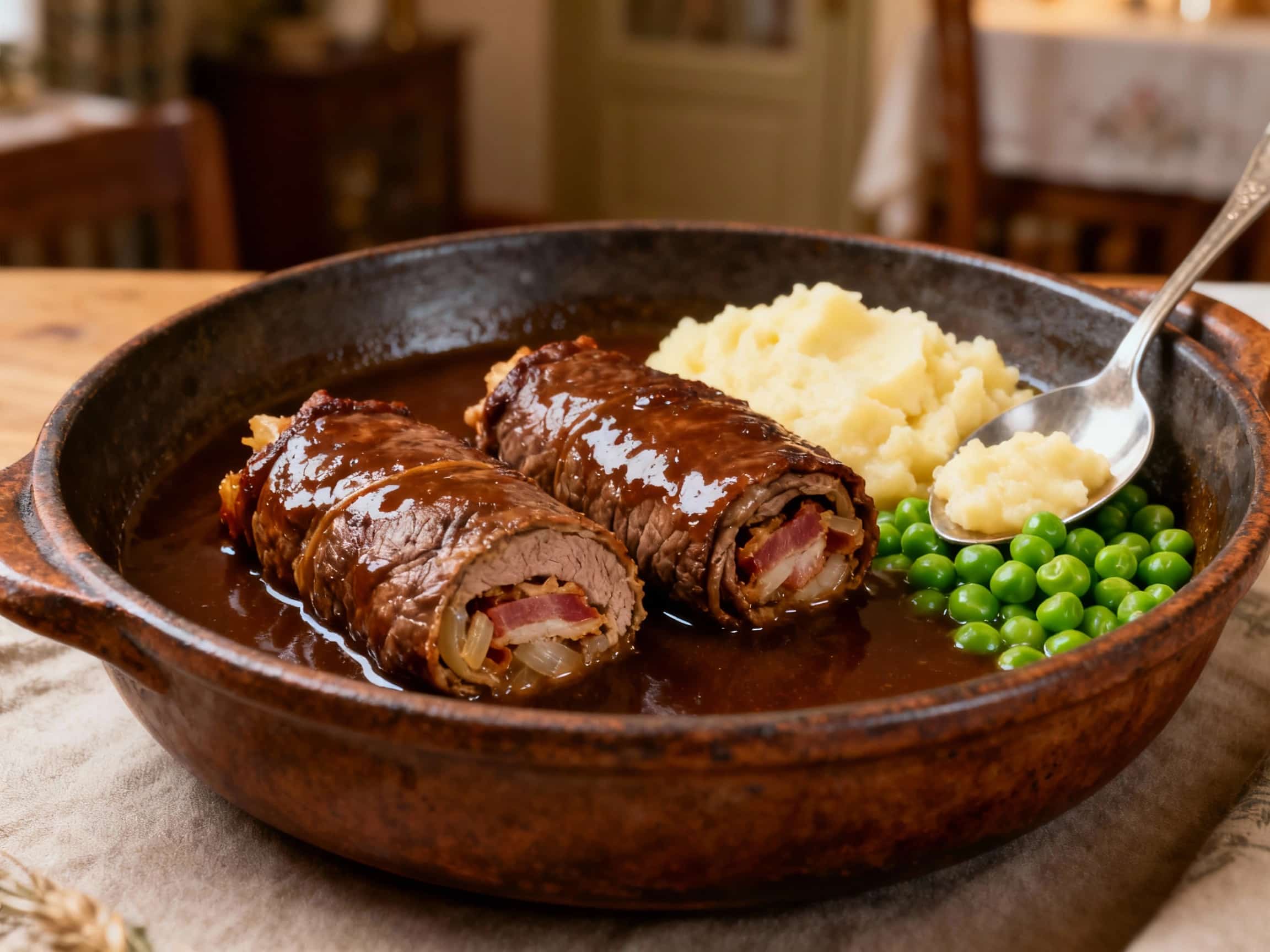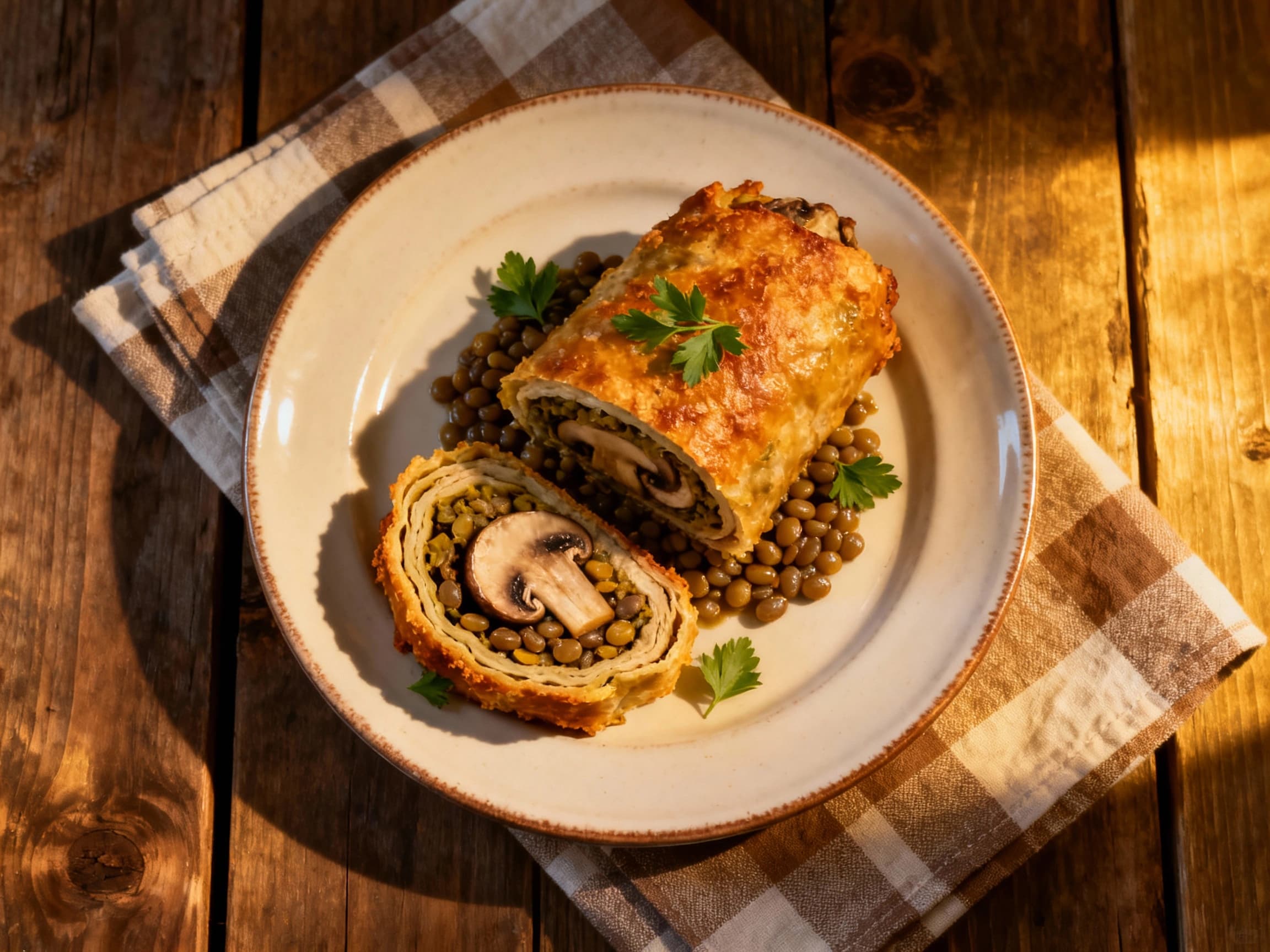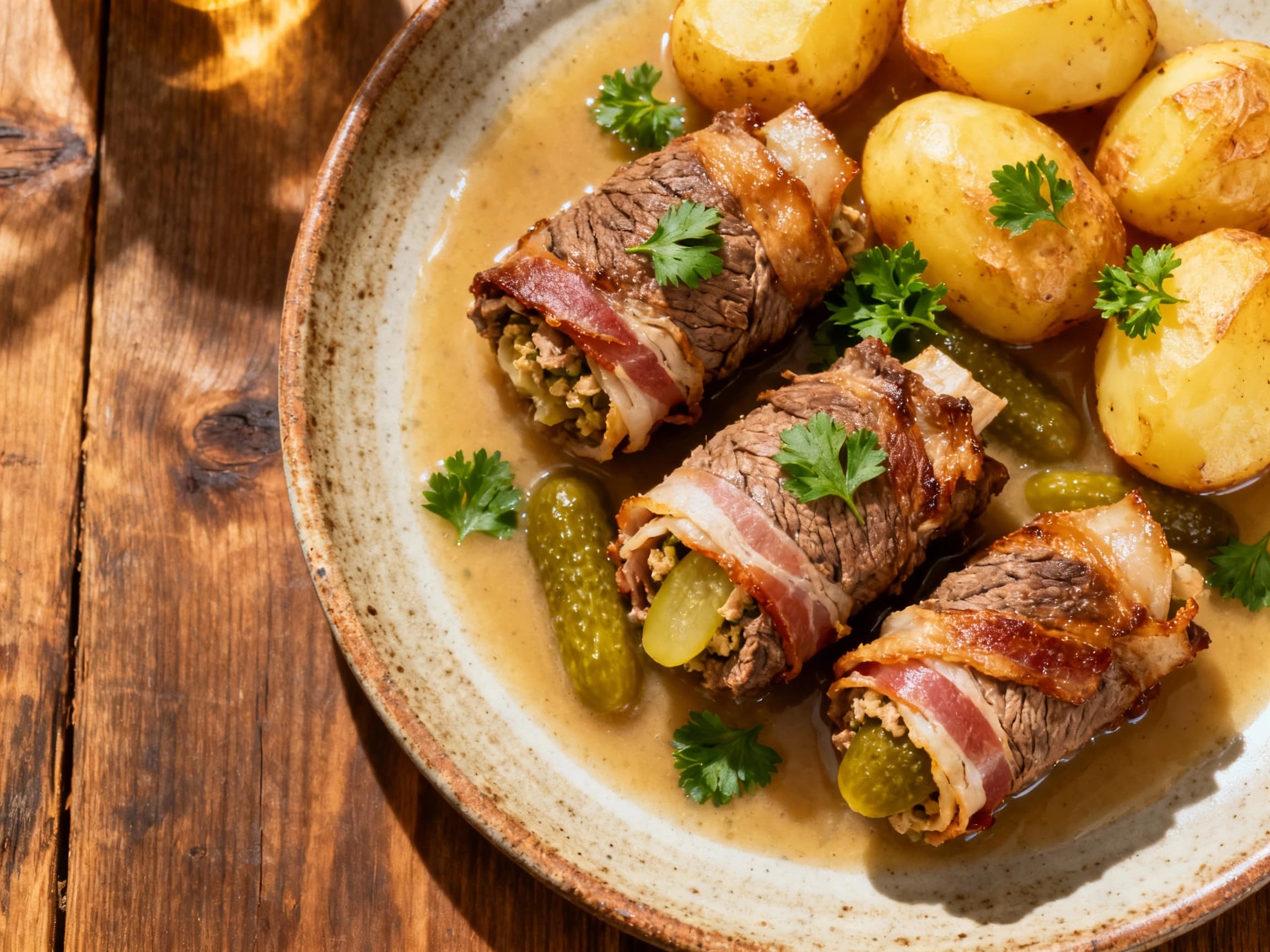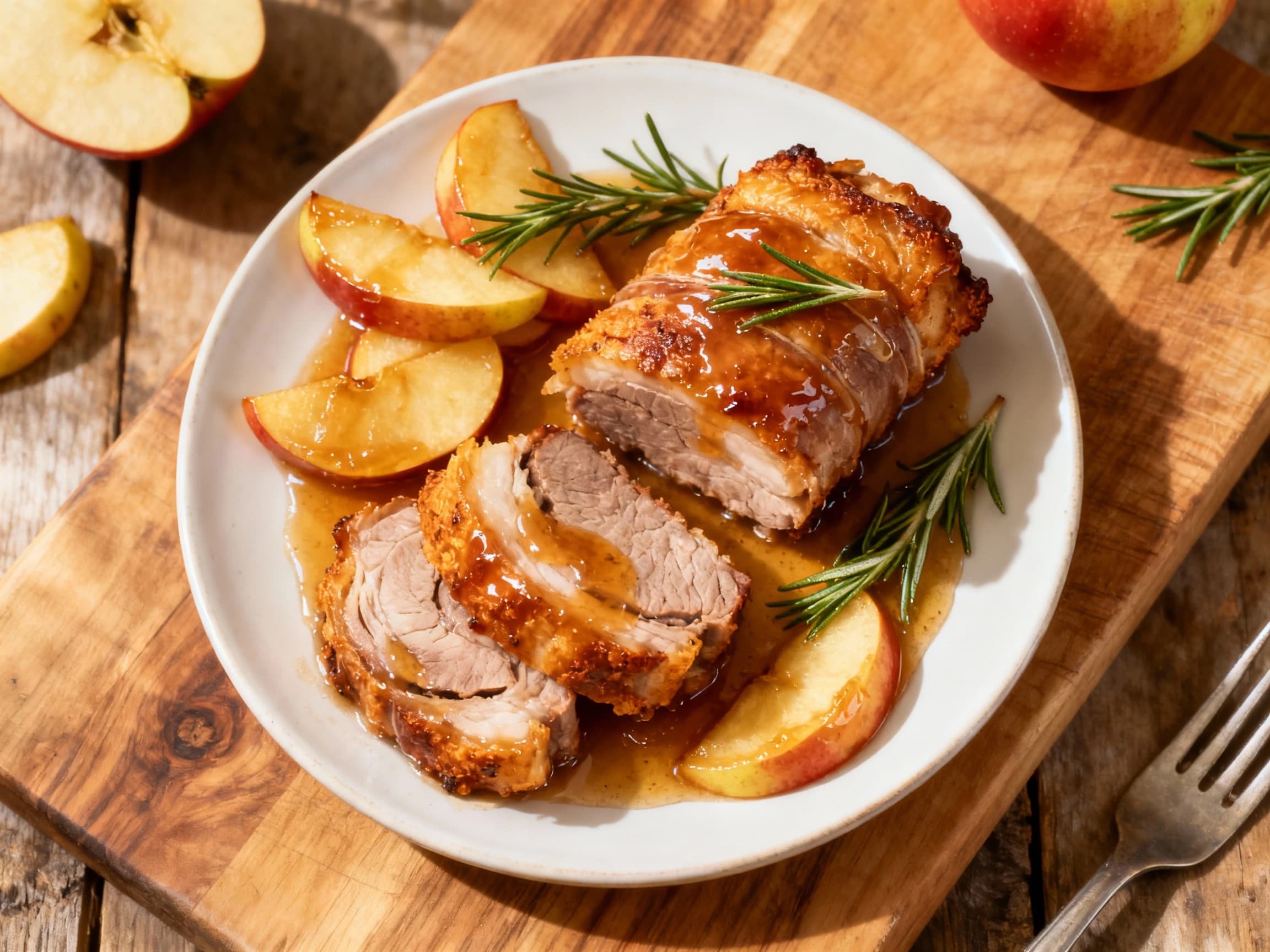
Rouladen
Rouladen
- Country
- Germany
- Region
- Various regions
- Recipes
- 3 Recipes
Origins & Characteristics of Rouladen
Rouladen, a classic German dish of rolled meat, embodies the heartiness and rich flavors characteristic of traditional German cuisine. Originating from Silesia, a historical region now spanning parts of Poland and Germany, Rouladen likely emerged as a way to utilize less tender cuts of beef, transforming them into a succulent and flavorful meal through slow braising. The dish typically consists of thin slices of beef, meticulously rolled around a filling that traditionally includes strips of bacon, finely chopped onions, sour dill pickles, and sometimes mustard. Once rolled and secured, often with string or skewers, the Rouladen are seared to develop a deep brown color before being simmered slowly for hours in a robust gravy made from beef broth, red wine, and sometimes a touch of tomato paste or gingerbread spice for richness and depth. This slow cooking process tenderizes the meat and allows the flavors to meld beautifully. Rouladen became a celebrated Sunday dinner staple and a dish of special occasions, symbolizing family gatherings and abundant hospitality. While specific chefs or historical figures aren't solely credited, its widespread adoption across German households and restaurants since the early 20th century highlights its cultural significance as a comforting and beloved national dish.
History of Rouladen
Rouladen begins to be documented as a popular regional dish in Silesia and neighboring areas.
The dish gains popularity across Germany, becoming a staple for Sunday dinners.
Cookbooks widely feature various Rouladen recipes, cementing its place in German culinary tradition.
Post-war Germany sees a resurgence in traditional dishes like Rouladen.
Rouladen is celebrated in numerous food festivals and gastronomical events across Germany.


